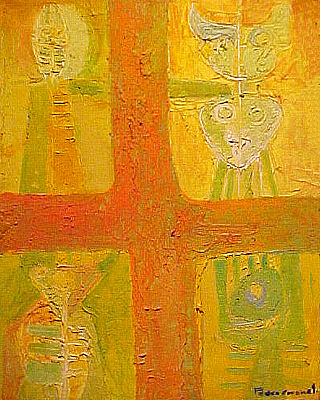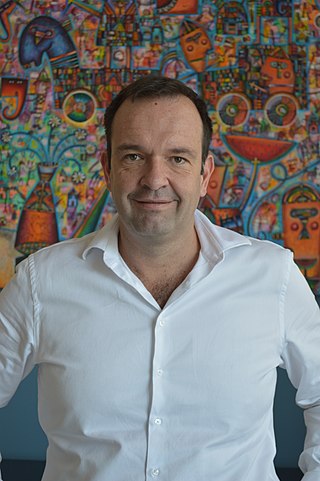Related Research Articles

Zacatecas is the principal city within the municipality in Mexico of the same name, and the capital and the largest city of the state of Zacatecas. Located in north-central Mexico, the city had its start as a Spanish mining camp in the mid-16th century. Native Americans had already known about the area's rich deposits of silver and other minerals. Due to the wealth that the mines provided, Zacatecas quickly became one of the most important mining cities in New Spain. The area saw battles during the turbulent 19th century, but the next major event was the Battle of Zacatecas during the Mexican Revolution when Francisco Villa captured the town, an event still celebrated every anniversary. Today, the colonial part of the city is a World Heritage Site, due to the Baroque and other structures built during its mining days. Mining still remains an important industry. The name Zacatecas is derived from the Zacateco people and has its roots in Nahuatl. The name means "people of the grasslands".

Instituto Tecnológico y de Estudios Superiores de Monterrey also known as Tecnológico de Monterrey or just Tec, is a secular and coeducational private university based in Monterrey, Mexico, which has grown to include 35 campuses throughout the country. One of only 45 universities in the World to be ranked with 5 QS Stars, it is widely recognized as one of the most prestigious universities in Latin America.
Mireille Roccatti Velásquez, is a Mexican scholar and jurist who served as the first female president of the country's National Human Rights Commission.
Gerardo Arturo González Sü is a Mexican entrepreneur.

The Cervantine Library Spanish: Biblioteca Cervantina is a library located on the main campus of Tecnológico de Monterrey, in the city of Monterrey, N. L, México.The library has about 130,000 items in its collection, with its holdings on Mexican history and culture ranked second in the Americas. It also houses series of photographs covering the history of Mexico and Monterrey during the 19th and 20th centuries.

Pedro Coronel was a Mexican sculptor and painter, part of the Generación de la Ruptura, bringing innovation into Mexican art in the mid 20th century. Coronel’s training was with artists of the Mexican muralism tradition, with influence from artists like Diego Rivera. This influence remained with the use of pre Hispanic themes and colors in his work. However, his artistic trajectory took him towards more use of color and more abstract forms in his work, due to influences from artists such as Rufino Tamayo. His work was exhibited and gained recognition in Mexico, the United States and Europe. Shortly before his death, he donated his considerable personal art collection to the people of Mexico, which was used to open the Museo Pedro Coronel in the city of Zacatecas.
This is a list of events that happened in 2011 in Mexico. The article also lists the most important political leaders during the year at both federal and state levels.
Juan Manuel De la Rosa is a painter, engraver, and ceramicist known for his works on handmade paper. He studied lesser-known techniques for painting and papermaking from Japan, Egypt, Fiyi and France; his handmade paper is typically made of linen, cotton, or hemp. With these traditional approaches, he creates layers and adds new dimensions to his artworks.

Francisco Gonzalez-Pulido is a Mexican architect noted for his expressive, yet rational design approach. From 1992 through 1998, he worked predominately on his own. In 1999, he joined the Chicago firm Murphy/Jahn Architects. He has worked on a wide range of building typologies with a strong emphasis on the design of skyscrapers and airports in America, Europe, Asia, and the Middle East. After a long time working with Helmut Jahn, Gonzalez-Pulido became the firm's first partner in 2009 and then president in 2012. In the Fall of 2017, Francisco Gonzalez Pulido left JAHN to establish his own international architectural practice, FGP Atelier.
José Emilio Amores Cañals was one of the first chemistry teachers at the Monterrey Institute of Technology and Higher Education and is known for his work in promoting the arts from 1947 to the present in the city of Monterrey, Mexico. His cultural work grew out of his initial teaching job, when the director of the Palacio de Bellas Artes refused to help him bring musicians to play in Monterrey. He founded the Sociedad Artística Tecnológico, which he directed for thirty-two years, followed by stints directing several museums and other cultural institutions. He also has written poetry, essays, books and a play.
Daniel Moska Arreola is a professor and director with the Monterrey Institute of Technology and Higher Studies, who has created various educational and business programs both with the institution and outside of it.
Ismael Aguilar Barajas is a professor and researcher in economics and sustainable development at the Monterrey Institute of Technology and Higher Studies, Campus Monterrey, whose work has been recognized by the Sistema Nacional de Investigadores.
Mario Moises Alvarez is a Mexican researcher, born in Cd. Juárez, Chihuahua. He was a Visiting Professor at the Harvard-MIT Division of Health Sciences and Technologies, at the Brigham Women's Hospital of the Harvard Medical School, in Cambridge Massachusetts (2014-2017). He also collaborated as a visiting professor in the Microsystems Technology Laboratories at MIT (2015-2016). Alvarez conducted research at the BIRC in the areas of Tissue Engineering, Biomaterials, and Microfluidics. Today, Mario Moisés Alvarez is a Full Professor at the Monterrey Institute of Technology and Higher Studies, specializing in biomedical and biopharmaceutical engineering. His work has been recognized by Level III membership in Mexico's Sistema Nacional de Investigadores, a permanent membership in the AMC, two granted US patents and twelve granted Mexican patents. He recently received the Rómulo Garza Insignia Award in 2017, the most prestigious research award from his institution, Tecnológico de Monterrey.
Dora Elvira García González is a Mexican professor and researcher with the Monterrey Institute of Technology and Higher Studies as well as director of the humanities school of the Mexico City Campus. Her research work has been recognized by Level II membership in the Mexico’s Sistema Nacional de Investigadores.
Vyacheslav Vitalievich Kalashnikov is a Russian mathematics professor and researcher currently working at the Tec de Monterrey, Monterrey Campus in Mexico. His work has been recognized by awards from the Ukrainian Academy of Sciences and the Central Economic Mathematical Institute of the Russian Academy of Sciences and is also a Level III member of Mexico’s Sistema Nacional de Investigadores.
Joaquín Esteban Oseguera Peña is a medical professor and researcher specializing in thermochemical treatments involving plasma and materials mechanical engineering.
David Muñoz Rodríguez is a professor and researcher with the Tec de Monterrey, Campus Monterrey, specializing in electronic communications. He has been teaching at the university level since 1971 and director of the Centro de Electrónica y Telecomunicaciones since 1992. He has published numerous peer-reviewed articles and several books. His work has been recognized by Level III membership in the Sistema Nacional de Investigadores and various awards.

Javier de Lope Francés is a Mexican entrepreneur who founded several startups starting in high school. By the end of his college career he had founded 5 businesses, securing one million USD to expand one of them. His career since then has focused on creating new businesses, primarily in real estate and technology in Mexico.
References
- 1 2 "Pablo Reimers: trascender a través del compromiso social es su prioridad". Tec de Monterrey. July 24, 2013. Archived from the original on July 27, 2013. Retrieved July 27, 2013.
- 1 2 "Fallece Pablo Reimers". Zacatecas: Zacatecas en Imagen. January 29, 2014. Retrieved February 3, 2014.
- 1 2 "El mundo Cesantoni". Zacatecas: NTR Noticias. April 19, 2009. Retrieved July 27, 2013.
- ↑ "Formalizan su amor Adriana y Bernardo". Mexico City: El Porvenir. October 3, 2010. Retrieved July 27, 2013.